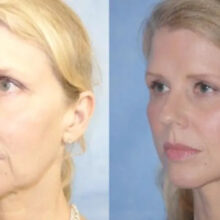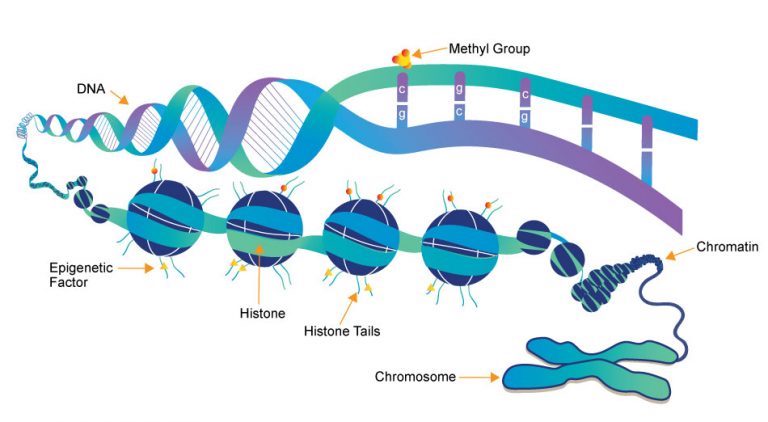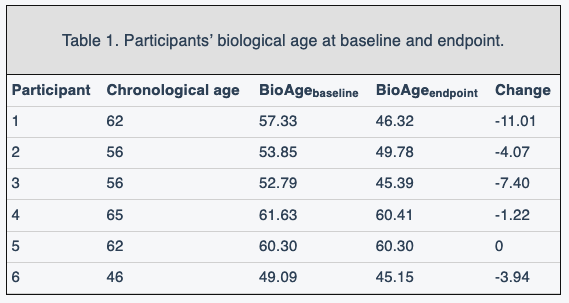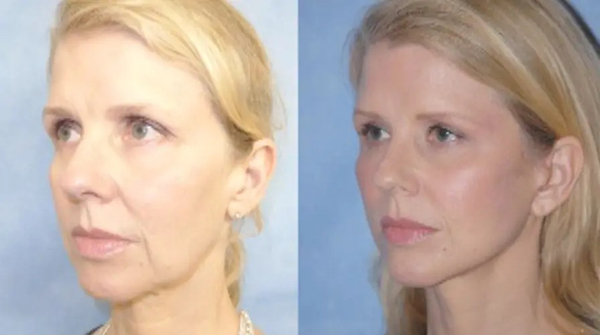Reverse Your Biological Age with Diet, Exercise, Sleep and Stress Reduction

Reverse your biological age by following the lifestyle factors tested and proved to do just that in a recent study published in the journal, Aging. Here’s how to trim 11 years from your bioage in just 8 weeks!
Wouldn’t you like to know how to reverse your biological age? I’m referring to literally making your cells physiological/biochemical younger.
This is what this website is all about, and so I’m pleased to review a study published in March of 2022 in the journal, Aging that measured the reversal of biological age in women who followed an eight week methylation-supportive diet and lifestyle program.
The study’s findings may have important implications for public health, as chronic diseases affect six in ten adults in the US, and improving collective healthspan has potential financial benefits.
What the heck is a “methylation-supportive diet and lifestyle program?”, you ask? Well, it has to do with biological age and how it’s measured, as you’ll soon learn.
Content: Reverse your biological age via methylation Methodology and design Daily food consumed Lifestyle modifications Findings Strengths Limitations Implications and future directions Conclusion
Let’s dig in…
Reverse Your biological Age via Methylation

Visualizing epigenetic changes: methylation and histone modification. Image Source: (https://www.whatisepigenetics.com/fundamentals/)
Methylation, a vital biochemical process, plays a crucial role in gene expression and biological aging. It refers to the addition of a methyl group to the DNA molecule, which can result in the modification of gene expression patterns and the regulation of various cellular processes.
As I describe in my post, 3 Ways to Increase DNA Methylation and Get Biologically Younger:
When you increase DNA methylation, you take a big step to improving your healthspan by decreasing your bioage relative to your chronological age… If methylation levels are boosted, it switches off genes; whereas if we’ve got too little DNA methylation then it switches on the genes.
As we of a certain age know all too well, aging is a complex phenomenon characterized by the progressive decline in physiological function and an increased susceptibility to age-related diseases. But we all do not experience this equally, because there’s three scenarios at play:
- Chronological age < bioage (undesired)
- Chronological age = bioage (perhaps the average case)
- Chronological age > bioage (the aspiration)
This, of course, is obvious. We all know someone that appears younger or older than their calendar years. The study in question was structured to discern if a certain diet combined with exercise could result in #3 above: a biological age less than calendar years.
In order for any study of this kind to work, researchers need a way to accurately determine a person’s biological age before and after the experiment. This is done by measuring DNA methylation patterns that change throughout the aging process. These changes are associated with alterations in gene expression, cellular function, and overall health.
Research has shown that specific patterns of DNA methylation, often referred to as DNA methylation clocks, correlate with chronological age. DNA methylation clocks have been developed to provide a measure of biological age that reflects the cumulative effects of aging and can be used as a predictor of various age-related outcomes, such as mortality, disease risk, and overall health status. These clocks have shown promise in assessing the effectiveness of interventions aimed at slowing down or reversing biological aging.
Understanding the relationship between DNA methylation and biological aging can help shed light on the underlying molecular mechanisms of aging, and potentially identify targets for interventions to promote healthier aging and extend healthspan.
And that’s what was done in the study I’m about to review, which is entitled: A Comprehensive Review of “Potential Reversal of Biological Age in Women Following an 8-Week Methylation-Supportive Diet and Lifestyle Program: A Case Series.
Methodology and Design
The researchers employed a case series design that analyzed the outcomes of an eight week intervention on a group of six women, between the ages of 46 and 65. (This sample size is alarmingly small, and is thereby one limitation of the study that I discuss below.)
The women underwent a methylation-supportive diet and lifestyle program, including dietary modifications, stress reduction techniques, exercise and supplementation. Comparable baseline and endpoint biological age testing was measured using DNA methylation clocks.
The intervention the women followed included a specific set of dietary recommendations high in known “epinutrients” (see below).
Epinutrients are thought to favorably influence DNA methylation-based clocks and therefore have the potential to compress morbidity and extend mortality. Epinutrients may be defined as dietary nutrients that provide either substrates or cofactors for DNA methylation activity, or influence the expression or rate of activity of DNA methylation-related enzymes.
Simple carbohydrates (low glycemic) were restricted. The diet was mainly plant-based, but included key nutrient-dense animal protein: from five to ten eggs per week, six ounces of animal protein daily, and three three once servings of liver per week (or an encapsulated liver supplement).
Participants were asked to eat all food within a 12-hour window each day to incorporate a basic level of intermittent fasting (see my posts on Intermittent Fasting), and were encouraged to track their water consumption, with the aim of drinking eight cups per day.
Dietary supplements consisted of a probiotic containing 40 million CFU of Lactobacillus plantarum 299v. L. plantarum (UltraFlora® Intensive Care, Metagenics Inc. Aliso Viejo, CA, USA) and a fruit and vegetable powder, rich in additional polyphenolic compounds, twice a day (PhytoGanix®, Metagenics Inc. Aliso Viejo, CA, USA).
The Diet — Daily Food Consumed
- 2 cups dark, leafy greens
- 2 cups cruciferous vegetables
- 3 cups colorful vegetables
- ¼ cup pumpkin seeds
- ¼ cup sunflower seeds
- 1 to 2 beets
- Liver or liver supplement (three, 3 oz servings per week)
- 1 serving of egg (5-10 per week)
Participants were also asked to eat two servings daily of methylation adaptogens—foods that support DNA methylation, a process that controls gene expression. Examples of one serving of such foods include:
- ½ cup berries, preferably wild
- 2 medium garlic cloves
- 2 cups green tea, brewed 10 minutes
- 3 cups oolong tea, brewed 10 minutes
- ½ tsp rosemary
- ½ tsp turmeric
Participants were also asked to make the following daily lifestyle adaptations:
- Take 2 probiotic capsules
- Take 2 servings of “greens powder”
- Drink 8 cups of water per day
- Exercise for at least 30 minutes
- Practice breathing exercises twice
- Sleep at least 7 hours
- Fast 12 hours after their last meal of the day
None of the women completed all tasks every day, which was acceptable to the researchers. (Note: they averaged an 82 percent compliance rate.)
Lifestyle Modifications — Exercise, Stress Mitigation and Sleep
The women were asked to do a minimum of 30 minutes of physical activity at least five days a week, at an intensity of 60 to 80 percent of maximum perceived exertion. All participants were encouraged to get a minimum of seven hours of sleep per night, and participate in two, ten minute breathing sessions per day designed to elicit the relaxation response. A meditation video was provided to help with relaxation, breath work and focus.
Exercise Prescription:
Minimum of 30 minutes of exercise per day for at least five days per week, at an intensity of 60-80% of maximum perceived exertion.
Sleep Prescription:
An average of seven hours of sleep each night.
Stress Management Prescription:
Breathing exercises were guided by Steps to Elicit the Relaxation Response developed by Herbert Benson MD, and done twice daily.
This is Dr. Benson’s protocol:
- Sit quietly in a comfortable position.
- Close your eyes.
- Deeply relax all your muscles, beginning at your feet and progressing up to your face. Keep them relaxed.
- Breathe through your nose easily and naturally.
- Become aware of your breathing.
- As you breathe out, say the word, “one”*, silently to yourself.
- For example, breathe in … out, “one”, – in .. out, “one”, etc.
- Continue for 10 to 20 minutes.
- You may open your eyes to check the time, but do not use an alarm.
- When you finish, sit quietly for several minutes, at first with your eyes closed and later with your eyes opened.
- Do not stand up for a few minutes.
- Do not worry about whether you are successful in achieving a deep level of relaxation.
- Maintain a passive attitude and permit relaxation to occur at its own pace.
- When distracting thoughts occur, try to ignore them by not dwelling upon them and return to repeating “one.”
Here’s another method to try if you enjoy soothing music:
Findings

Table 1 from the study, A Comprehensive Review of “Potential Reversal of Biological Age in Women Following an 8-Week Methylation-Supportive Diet and Lifestyle Program: A Case Series.
Blood tests showed a reduction in biological age of up to 11 years in five of the six women, with the average participant experiencing a 4.6-year decrease in biological age.
Remember, this dramatic improvement in bioage occurred in just eight weeks with an average adherence to the program of 82%.
Additionally, improvements were observed in various biomarkers, such as blood pressure, cholesterol levels, and body composition. Despite the small cohort studied (just six women) and short intervention (just eight weeks), these findings are promising and suggest that methylation-supportive interventions may have beneficial effects on biological aging.
Strengths
One of the notable strengths of the study is its focus on an innovative approach to address biological age reversal through methylation-supportive interventions. The use of DNA methylation clocks to measure biological age adds credibility to the findings.
The study design also incorporated multiple lifestyle modifications, making it a comprehensive program that reflects real-world applications. Moreover, the statistical significance of the results adds weight to the potential effectiveness of the intervention.
Limitations
Despite its strengths, the study is not without limitations, as I’ve previously mentioned.
The small sample size and lack of a control group reduce the generalizability of the findings. Additionally, the short duration of the intervention limits our understanding of the long-term effects and sustainability of the observed changes. Further, the study focused solely on women, which restricts the applicability of the results to a broader population. Future research should address these limitations to provide a more comprehensive understanding of the intervention’s efficacy.
Having outlined the limitations of the study, clearly the diet and lifestyle interventions incorporated in the study are factors I encourage you to employ to reverse your biological age; surely, there’s little to no downside that I can perceive.
Implications and Future Directions
The study’s findings have several implications for future research and clinical practice. Firstly, they highlight the potential of methylation-supportive interventions in reversing biological age. This opens up new avenues for developing personalized anti-aging strategies. However, further research with larger sample sizes, longer follow-up periods, and diverse populations is necessary to confirm these results. Additionally, investigating the specific mechanisms underlying the observed changes would enhance our understanding of the impact of methylation on biological age.
From a clinical perspective, the study provides a foundation for developing evidence-based interventions that target biological age reversal. In an ideal world, healthcare professionals would incorporate methylation-supportive interventions into their practice, promoting healthier aging and disease prevention. However, typically, they’re not paid to provide this sort of counsel and coaching.
Conclusion
In conclusion, the study on the potential reversal of biological age in women following an eight week methylation-supportive diet and lifestyle program presents compelling findings, findings that I encourage you to incorporate to help reverse your biological age.
The results suggest that this intervention may have a positive impact on biological age, as evidenced by the statistically significant decrease observed. But, the study has limitations — the small sample size and lack of a control group must be acknowledged. Future research should address these limitations and explore the underlying mechanisms to strengthen the evidence base for methylation.
And that’s it. Scroll below to the Comments section should you wish to ask a question or leave a comment.
If you want to be alerted when I write a new post, become a Subscriber:
Subscribe to my Newsletter!
Last Updated on May 20, 2023 by Joe Garma



